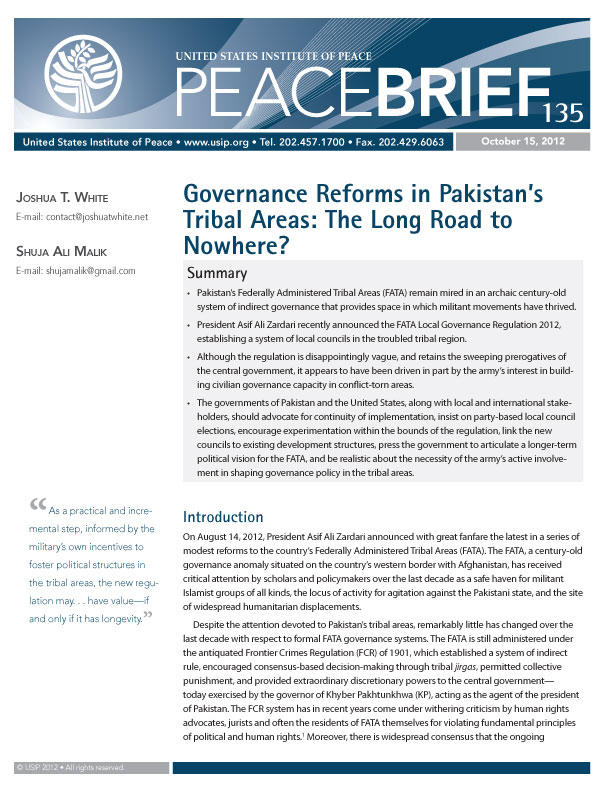A new peace brief examines the strengths and weaknesses of recent reforms to the regulation of Pakistan’s Federally Administered Tribal Areas (FATA).
Summary
- Pakistan’s Federally Administered Tribal Areas (FATA) remain mired in an archaic century-old system of indirect governance that provides space in which militant movements have thrived.
- President Asif Ali Zardari recently announced the FATA Local Governance Regulation 2012, establishing a system of local councils in the troubled tribal region.
- Although the regulation is disappointingly vague, and retains the sweeping prerogatives of the central government, it appears to have been driven in part by the army’s interest in building civilian governance capacity in conflict-torn areas.
- The governments of Pakistan and the United States, along with local and international stakeholders, should advocate for continuity of implementation, insist on party-based local council elections, encourage experimentation within the bounds of the regulation, link the new councils to existing development structures, press the government to articulate a longer-term political vision for the FATA, and be realistic about the necessity of the army’s active involvement in shaping governance policy in the tribal areas.
About this Brief
Joshua T. White was a 2011–12 Jennings Randolph Peace Scholar at the U.S. Institute of Peace. He holds a Ph.D. from Johns Hopkins University, and conducted a portion of this research in conjunction with a generous grant from the American Institute of Pakistan Studies. Shuja Ali Malik received his M.Sc. in International Relations from Quaid-e-Azam University, and works as a producer at an Urdu-language news service in Islamabad. The views expressed in this brief do not necessarily reflect the views of the U.S. Institute of Peace, which does not take policy positions
